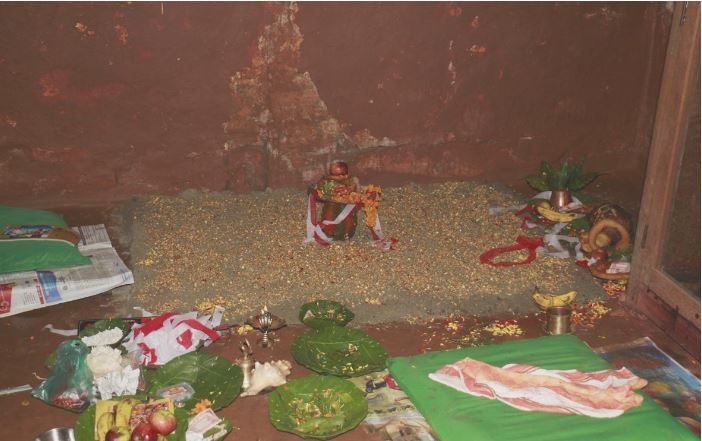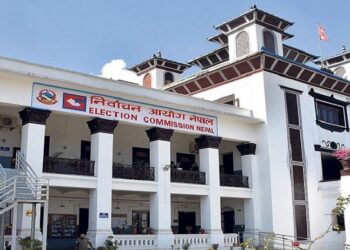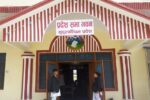KATHMANDU: “Navaratri Parba” or the nine-night festival of Bada Dashain, the great festival of the Hindus of Nepal, commenced from Sunday.
The first day of Bada Dashain festival is called “Ghatasthapana” that falls on Aswin Shukla Pratipada, the first day of the bright half of the lunar calendar in the month of Asoj.
On the day of Ghatasthapana, all Nepali worship Diyo (an oil-fed lamp), Kalas (auspicious jar) and lord Ganesh in accordance with Vedic rituals and sow maize and barley seeds in a jar filled with soil and cow dung for germination of the auspicious Jamara (barley shoots). The auspicious hour for observing Ghatasthapana is 10:35 am today, according to Nepal Calendar Determination Committee.
Prayers are also offered to Durga Bhavani, the goddess of power today. Germination of the auspicious “Jamara” is also initiated at Hanumandhoka Dashain Ghar in accordance with Vedic rituals, today.
There is also a tradition of sacrificing animals while initiating the germination of the “Jamara”.
Also today, prayers are offered to goddess Mahakali, Mahalaxmi and Mahasaraswati at the Dashain Ghar, marking the beginning of the Navaratri (nine nights).
The golden barley shoots and the auspicious Tika are given by parents to their children and by elders to their juniors on the tenth day of the Bada Dashain festival with blessings for peace, progress and prosperity.
The auspicious hour for receiving Tika this year is 10:35 am on October 8, according to the Committee Chair Dr. Ram Chandra Gautam.
During the Navaratri, thousands of devotees visit Naxal Bhagawati, Shobha Bhagawati, Maitidevi, Guheswori, Bhadrakali, Kalikasthan, Sankata, Mahankalsthan, Naradevi, Bijayeswori, Indrayani, Dakshinkali, Chamunda and other shrines of goddess Durga Bhavani in the early morning.
People also recite sacred verses and hymns dedicated to Durga Bhawani at temples and shrines as well as at their homes throughout the Dashain period.









Comment